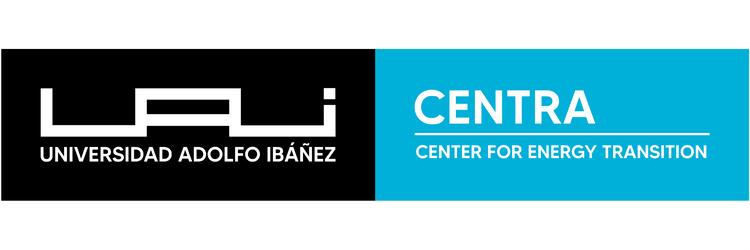UC Berkeley expert speaks at the launch of the UAI Center for Energy Transition
April 6, 2022
On Wednesday, April 6, the launching ceremony of the UAI Center for Energy Transition (CENTRA) was held, an interdisciplinary body – born from the Faculty of Engineering and Sciences UAI (FIC) – whose purpose is to allow society to advance in the transition towards economical, environmentally friendly, socially acceptable and secure energy supply and use systems.
At the event, Daniel Kammen, professor at the University of California, Berkeley and senior adviser for energy innovation at the U.S. Agency for International Development, spoke about the challenges in energy transition at a global level.
The UC Berkeley academic stated that, although work on clean energy is beginning two decades late, there is still time to achieve changes and make a difference through a joint effort between academia, industry and government, one of the the purposes of CENTRA UAI.
Kammen commented that “we need this type of collaborations and that they act quickly in all areas. The future is already here, but it is not distributed equally and for me that is the main problem”. The specialist added that solving the issue of climate change is essential, so the message for the academy is to start doing – as quickly as possible – things that have never been done before”.
In the same way, Daniel Kammen pointed out that in California they are facing the same challenges as in Chile in terms of climate change and energy and highlighted the importance of social justice in the energy transition. “What CENTRA is doing, and what I am optimistic about even though I know we wait a long time to act, is that the equation of academia, industry and government will work better while quantifying the benefits of social justice.”
From academia to industry
The inauguration was also attended by authorities of the government and the Universidad Adolfo Ibáñez, who also referred to the importance of collaboration between academics, businessmen and the government in the energy transition.
The UAI Rector, Harald Beyer, stated that “this center aspires to overcome the coordination difficulties that existed before and become an ally in the energy transition that the country has begun to experience”.
Beyer added that “the University, and its Faculty of Engineering and Sciences, are tremendously happy with the launch of this center, since it is an opportunity to share the knowledge we generate with the society that surrounds us.” The UAI Rector stressed that “the UAI cannot renounce its educational role, nor to dialogue productively with the community that surrounds it and spread the knowledge it cultivates. The country requires the contribution of universities to face increasingly complex problems that require a multidisciplinary approach and appeal to knowledge and skills that are dispersed in the State, private companies and academia, and there are opportunities to virtuously bring these capacities together.”
For his part, the Dean of UAI Engineering, Carlos Jerez, highlighted the challenge and the role assumed by the faculty in 2020 to contribute to the achievement of the UN Sustainable Development Goals (SDGs), through the Smart + Sustainable formula: “Sustainability needs intelligence to solve the challenges of the SDGs and the latter implies a concerted effort among all the actores. Since 2020, the FIC has been working so that its training programs, our relationship with the industry and research are oriented not only towards academic excellence, but, above all, to make an impact”.
Jerez also assured that “Chile can be an example at the international level in energy matters and with CENTRA we hope to contribute to the ecosystem to achieve that mission.”
The Assistant Secretary of Energy, Julio Maturana, emphasized how the contribution of the academy in the energy transition helps “open the margins of what is possible”. “The academy allows us to pay attention to issues that perhaps others were not considering and take the most complex problems to take them towards the simple (…) we are going to be able to have multidisciplinary studies and the challenge is that society also feels part of this transition energy”, Maturana pointed out.
At this point, the head of the Participation and Dialogue Division of the Ministry of Energy, Cecilia Dastres, urged those present to take into account the relevance of people and communities in the challenge of energy transition. · “If we are not able to translate people and get them on the energy transition bandwagon, we are not going to make much headway (…) your challenge is to think of new associative energy transition business models that allow people to be involved in the benefits of access and renewable energy projects”.
Finally, the director of CENTRA UAI, Daniel Olivares, referred to the main guidelines of the organization and the contribution it will make to the country. “It is essential to have new spaces for research, development, analysis and deliberation that are collaborative and interdisciplinary, that allow us to reach the consensus we need and promote technological developments to shape the future of the sector,” he said.
The UAI Engineering academic also stressed that CENTRA “intends to become a national and international benchmark in applied research for the generation and transfer of solutions to global energy challenges, but from a local perspective to promote the sustainable development of our country and the rest of the world.”
Posted in:
Noticias UAI, Bnamericas, Minería y Futuro, Estación Industria, Innovación Chilena, Guia Chile Energía, Reporte Sostenible, Electromov, Revista ElectroIndustria
